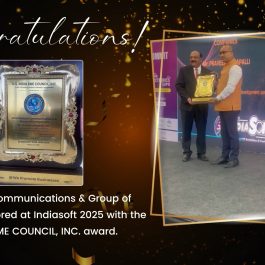5 min read

Personal branding is now more crucial than ever in the internet era. Now that social media and online platforms are more widespread, people can control their reputation and image. Online reputation management (ORM) is essential to developing a powerful personal brand. This blog post will cover the concept of ORM for individuals and methods and strategies for managing and enhancing your online reputation.
Table of Contents
What Does a Personal Branding Mean?
Each individual has a unique personal brand. People will have a particular perception of you, just like with corporate brands. By handling your brand, you can control what people think and feel when interacting with you.
What you stand for as an individual must be defined and promoted through personal branding. The experiences, abilities, and values that set you apart come together to form your brand.
Benefits of Personal Branding
Building Credibility
- Building a strong personal brand will make establishing credibility in your field simpler.
- You can demonstrate your skill and knowledge by doing so.
- Private, solid brands increase a person’s likelihood of being trusted and engaging with them.
Opening Up Possibilities
- Possessing an effective personal brand opens up new possibilities.
- It might result in interviews, invitations to speak, and joint ventures.
- You can differentiate yourself from the competition by developing your brand.
Relationships Developing
- Utilizing personal branding will help you meet people with similar interests.
- You can use it to create a network of business people in your field.
- Strong connections can result in mentoring, collaboration, and support.
How to build a personal brand
Establish Your Brand and Develop Your Expertise: Consider reflecting on your identity and what makes up your brand. Use adjectives to describe your persona, culture, and outlook, such as cooperative, resourceful, adaptable, connected, visionary, diplomatic, intuitive, precise, enterprising, ethical, genuine, and accessible. If you want to be featured in the media, attract new clients, or grow your business, you should focus on developing an authoritative position in your industry. Refraining from specializing in something unrelated to your mission, goals, and vision is best. You will only waste your time.
Create a Presence: Friends, colleagues, and potential clients will Google your name, so be sure your branded content appears when they do. Building a fundamental online presence on your website or blog is one way to achieve this.
Boost Brand Recognition Through Networking: You should build relationships with other recent graduates working in accounting by commenting on their blogs and engaging with them on social media. Networking is one of the best ways to build a reputation in the field. You can develop your business and brand over time by building relationships with people in your audience.
Pay Attention to The Three Cs of Branding: Clarity, consistency, and constancy. Be definite about who you are and are not. Keep your credentials straightforward. Throughout all communication channels, express your brand. Before remaining visible to your target market, decide where you want to fit (industry or niche expertise).
Ask for feedback from those who know you best, whether at work, home, or elsewhere: People’s perception of you on a subconscious and emotional level is the actual test of your brand. Please pay attention to the way they introduce you to others. Inquire about your company’s key differentiators and core strengths. If they can recognize you right away, branding you has been successful.
Online Reputation Management (ORM): An Understanding
What is the ORM?
- The process of keeping an eye on and managing a person’s online reputation is known as ORM.
- It entails keeping track of online mentions, opinions, and remarks about you.
- ORM aims to address any harmful content and uphold a positive online reputation.
The Value of ORM to Individuals
- Your online reputation may impact both your professional and personal lives.
- People are frequently looked up online by potential employers, clients, and coworkers before making decisions.
- ORM helps you control the narrative and ensure accurate information is available.
The Essentials of ORM
- Tracking: Keep track of online conversations and mentions of you.
- Responding by: Responding promptly and professionally to any unfavourable comments or content
- Producing Positive Content: Actively disseminating and promoting self-affirming material.
- Engaging: Engaging your audience and establishing a solid online presence.
Effective ORM Techniques
Analyze Your Reputation
- Examine your current online presence and note any potential improvements.
- Use search engines and social media to look up your name.
- Keep an eye out for any negative or false information.
Create a Presence Online.
- Create professional profiles on the corresponding social media sites.
- Please fill out your shapes with accurate and current information to maximize them.
- Share information that supports your professional brand and area of expertise.
Keep Track of Reviews and Mentions.
- To keep track of mentions of your name, set up Google Alerts or use online monitoring tools.
- Review websites and social media platforms should be frequently checked for comments.
- Any unfavorable remarks or reviews deserve a prompt and courteous response.
Talk to Your Audience
- On social media platforms, reply to messages and comments.
- Join discussions and online communities that are pertinent to you.
- Participate in meaningful conversations and exchange valuable insights.
Produce and Disseminate Positive Content
- Share content on your blog, in magazines, or in videos demonstrating your expertise.
- Share your achievements, aspirations, and satisfying experiences.
- Utilize SEO strategies to make sure your content is ranked highly.
Challenges Faced In ORM
Online reputation management (ORM) is a multifaceted discipline with numerous challenges. One of the foremost challenges is dealing with the scrutiny and rapid spread of information on social media platforms, where negative comments and feedback can escalate swiftly. Additionally, combating fake reviews and ratings on platforms like Yelp and Google Reviews requires continuous effort. Maintaining favourable search engine rankings is crucial, demanding ongoing SEO work to outshine harmful content in search results. The constant monitoring of online conversations across the vast expanse of the internet is a persistent task, while crafting effective strategies to address, mitigate, or respond to harmful content is equally complex.
Balancing the need for monitoring with privacy concerns is delicate, and when a reputation crisis occurs, it necessitates a well-prepared crisis management plan. Competitive attacks on tarnishing reputations, online trolls and harassment, and the legal complexities surrounding libel and slander laws further complicate ORM. Additionally, larger organizations, in particular, need help calculating the return on investment (ROI) of ORM initiatives and preserving a consistent and favourable online reputation across various platforms. While the constantly changing algorithms of search engines and social media platforms necessitate constant adaptation of ORM strategies, managing reputation across diverse cultures and regions adds complexity for multinational entities. Finally, ORM necessitates proactive and reactive actions, ongoing monitoring, and adaptability to address these difficulties in preserving a positive online reputation.
Tactics to deal with those challenges
A thorough and strategic approach is necessary to address the many issues with online reputation management (ORM). Proactive monitoring tools are essential for tracking online mentions across various platforms, enabling early detection and prompt response to harmful content. How to address these challenges effectively. You can boost your online presence while lowering unfavourable search results by combining effective SEO tactics with a regular content creation strategy. To respond to criticism in a way that lessens its impact, engagement and openness are crucial when communicating with your audience on social media and review websites. Having a well-thought-out crisis management plan with designated spokespersons and communication protocols is the best way to deal with circumstances that could endanger your
Legal knowledge is invaluable, particularly in defamation and content deletion. In addition to proactive SEO strategies, a solid online brand presence, and the potential hiring of ORM specialists, implementing online review policies can aid in the fight against fake reviews. Privacy protection, competitive intelligence, and global adaptation round out your strategy, and ongoing learning and measuring key performance indicators (KPIs) ensure that your ORM efforts are still thriving and capable of adapting to the rapidly changing digital landscape. By incorporating these techniques, you can actively manage your online reputation, lessen the effects of damaging content, and ultimately promote a solid and positive online reputation.
Conclusion
In today’s online environment, developing a solid personal brand is crucial. Your online image must be shaped and maintained, and that’s where ORM comes in. Understanding the value of personal branding and applying good ORM practices will help you improve your reputation, open up fresh opportunities, and forge lasting connections.
Published: September 15th, 2023








